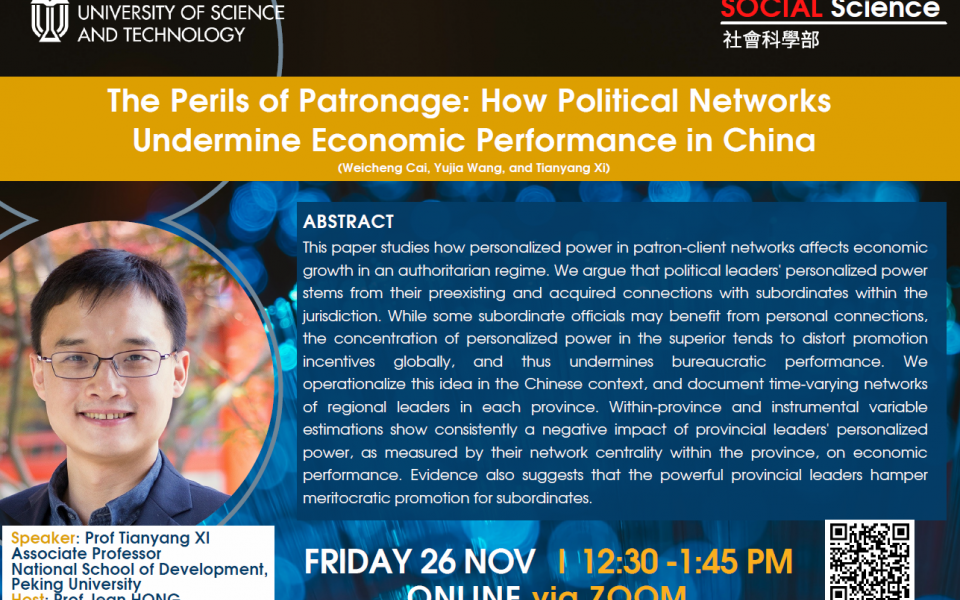Abstract
This paper studies how personalized power in patron-client networks affects economic growth in an authoritarian regime. We argue that political leaders’ personalized power stems from their preexisting and acquired connections with subordinates within the jurisdiction. While some subordinate officials may benefit from personal connections, the concentration of personalized power in the superior tends to distort promotion incentives globally, and thus undermines bureaucratic performance. We operationalize this idea in the Chinese context, and document time-varying networks of regional leaders in each province. Within-province and instrumental variable estimations show consistently a negative impact of provincial leaders’ personalized power, as measured by their network centrality within the province, on economic performance. Evidence also suggests that the powerful provincial leaders hamper meritocratic promotion for subordinates.
Bio
Tianyang Xi is an associate professor of political economy at the National School of Development of Peking University. His fields of interests include political selection, bureaucratic politics, and the political economy of development. His researches have appeared at journals such as Comparative Political studies, Journal of Theoretical Politics, Journal of Development Economics, Journal of Comparative Economics, Journal of Economic Behavior and Organization, and European Journal of Political Economy.
Host: Prof Jean HONG, Associate Professor, HKUST
